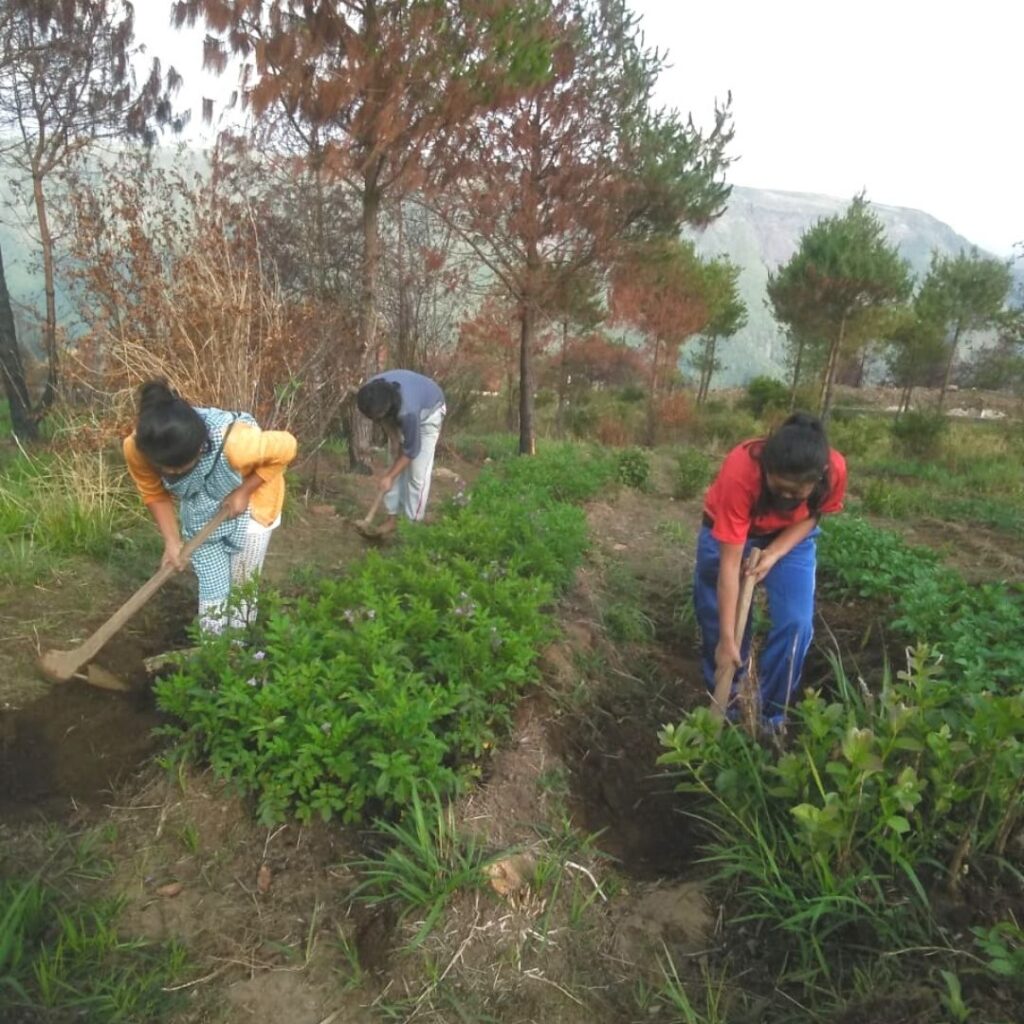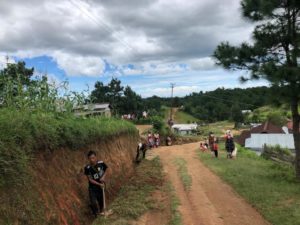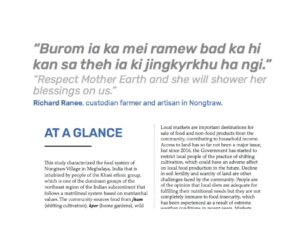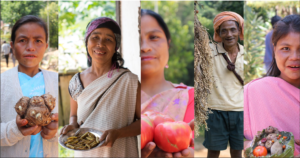Laitsohpliah ALC, an Agroecology Learning Circle group under NESFAS in the East Khasi Hills villages of Laitsohpliah and Laitumiong, recently started their own ALC garden on the 28th of February 2021. The ALC group, constituted of 16 members, are a combination of both youth and elders from the two villages and the garden has been started so that the custodian farmers can pass on their knowledge about traditional farming to the youth. Ms. Wanrila Khongngain, 23 years old, who is a member of the ALC group quoted that the ALC group is a platform for the members to “get ideas and share ideas of farming between members.”
The ALC garden, which is located in Laitsohpliah village, has been implemented as a trial plot where the members will conduct various experiments with farming. The community members will observe and record the results of the experiments as per the yield and adopt or create measures to increase the harvest accordingly. The garden will also act as a capsule for the preservation of species of crops that are almost extinct or found in scarce numbers in the village.
At present, the ALC group has planted over 16 different varieties of plants and crops including four different types of potatoes (Phan imdieng, Phan saw, Phan sawriang, Phan shriew), different family of pumpkins (Pathaw thohrew, Pathaw heh), peas, sohphlang, mustard leaves, and yams, among many other crops. The crops have taken very well to the rich black soil of the garden that has been found to be suitable for all kinds of crop that have been grown so far.

The garden has also been made a little further away from human settlement and cattle grazing grounds to protect the crops from grazing and other plant eating animals, (goats, sheep, pigs etc). Unlike most of their farm fields where the farmers use chemical fertilizers and pesticides, the ALC garden has been supplemented by organic waste and biomass from grasses, leaves, cow-dung, and pig waste, making it an all organic farm.
“We want to know how to plant or cultivate crops without any pesticides or fertilizers.” said Mrs. Bibinora Swer, who is one of the senior members of the group at 51 years.
Most of the crops, which were planted 29th of March, are expected to be harvested this month (July) though the harvest of different crops may vary. On the other hand, the plantation of non-seasonal crops will occur after the harvest of the aforementioned seasonal crops. The harvest month of the non-seasonal crops usually falls in the month of November.
The first harvest from this ALC garden will be solely for preservation purposes with all harvested seeds to be kept in the community seed banks. The later process of selling produce to the market is expected to come once the seeds have been preserved and the garden starts producing surplus harvest in the seasons to come.
When asked what the ALC group expected from the garden, Mrs. Ibanpynshai Nongrum, who is 41 years old, replied: “We hope, first of all, that we will be able to preserve the plants and crops which we do not have in our village.”
“Maybe after we achieve that, getting profits from selling the surplus from these gardens would also be great.” she added.





